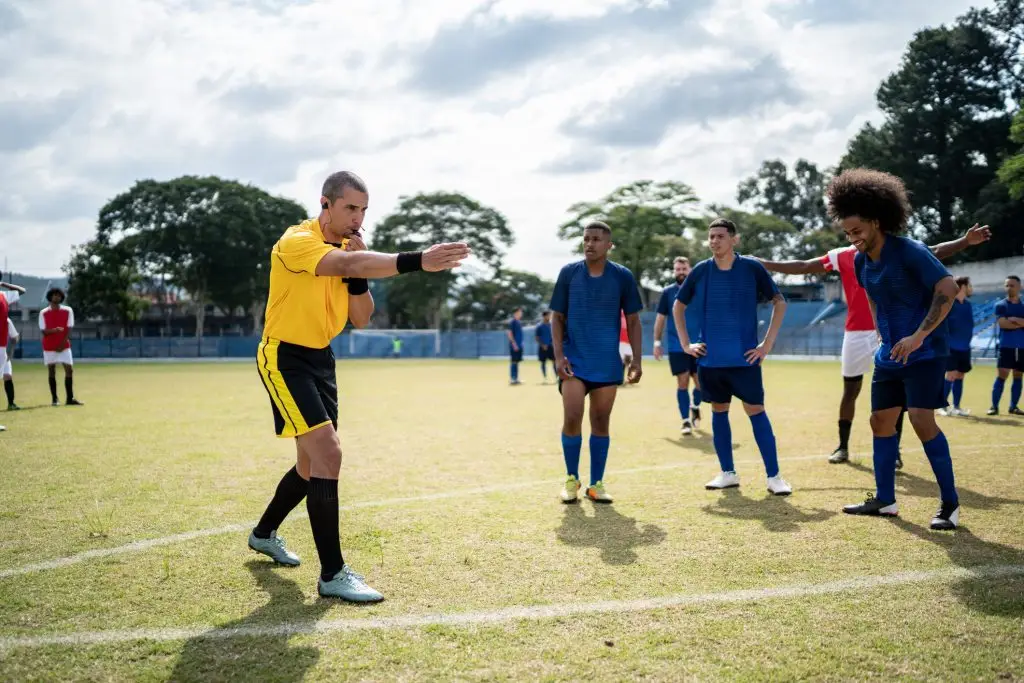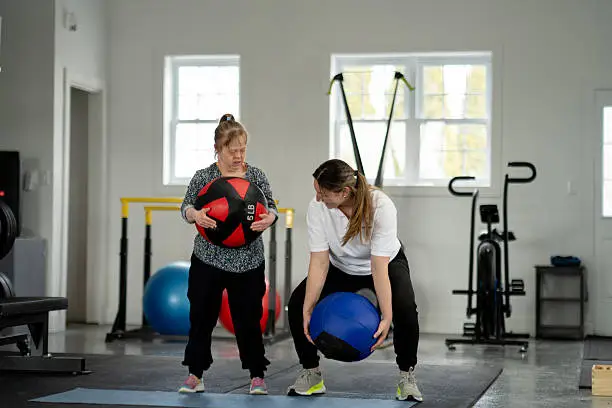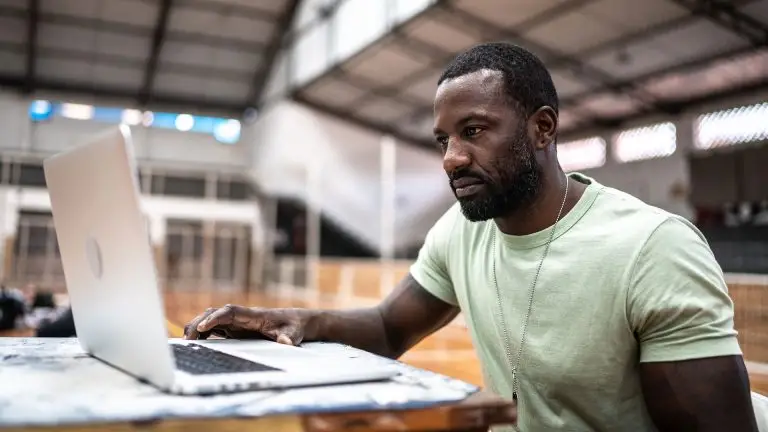Learn how to play fair
Why focusing on governance now is a future-smart move for sporting organisations

Over the past decade, scandals from across the sporting world have been common in the news, with historic welfare and safeguarding cases resurfacing as well as new problems coming to light. From discrimination to manipulation, the allegations have touched cricket, gymnastics, rugby and more.
As supporting everyone to participate in sport and physical activity being more important than ever, it’s critical that our organisations and professionals are equipped to provide a high standard of experience.
Provide the rulebook
To help empower our sector’s professionals to provide excellent sport and physical activity experiences, CIMSPA has worked with sector organisations and experts to create professional standards. From occupations and technical specialisms to working in specific environments or with specific populations, these standards help to define the expectations for anyone working in sport and physical activity.
Much more than simple rulebooks, the standards comprehensively set out the information necessary for working as a coach, for example, or with women and girls or young children. In doing so, they support understanding of the scope of sector roles and the knowledge and skills that individuals need to be successful professionals.
These standards, which CIMSPA manages on behalf of the sector, have become instrumental for education providers in designing training and qualifications, from level 1 CPD courses to university degrees. With courses aligned to professional standards, learners entering and progressing through the sector better understand how to support participants in sport and physical activity and, crucially, the limits and boundaries associated with their role.
Further to this is professional status, creating a world in which participants and parents can actually verify that their coach, personal trainer or swimming teacher is qualified and up to date in their professional knowledge through verifiable digital accreditation credentials. This reassures the public that the professional entrusted with supporting their body and mind during physical activity is fully capable of that, just like services that practitioners must be licensed to deliver, for example medical care or gas engineering.
However, while professional status is founded on the professional standards to ensure competency in the required knowledge and skills, this still has its limits. Though one requirement for maintaining a professional status is adherence with CIMSPA’s Member Code of Conduct, a requirement for and practice of good professional behaviour must be more widely implemented. In sport and physical activity, this stems from the diverse array of sporting bodies in the UK in their service for and guidance of their members. These organisations must demonstrate the best possible practice at governing level to form a solid foundation on which to build good practice among practitioners.
Ensure good refereeing
Sport England and UK Sport’s Code for Sports Governance, first published in 2016, has gone a long way in changing how cases of welfare and safeguarding issues are treated at the root cause – the governance of sporting bodies. The code sets out levels of transparency, diversity and inclusion, accountability and integrity that funded sporting organisations must now meet. With over 4,000 bodies complying already, this has seen a vast change to the face of the boards and committees that run them.
As the referees for a vast proportion of the sector workforce, this change in the way that sporting organisations are governed has made a fantastic difference already. Boards with the same faces for decades have benefited from a regular refreshing of ideas through the requirement for trustee turnover. Mandated diversity on boards has brought more support for more participants.
While having board members with a collective 100 years’ experience has had its benefits, now knowledge brought from other sectors offers new perspectives and allows for more effective and appropriate control of sector services.
In turn, this has empowered a more varied and modern workforce. Inspired and supported by the new governance systems, our professionals now better reflect the wide range of backgrounds across the UK. Experts in their local area, our sector is supporting increasing numbers of participants to enjoy the benefits of being active.
Keeping sporting organisations at the forefront of excellence and in line with funding requirements are governance professionals. By ensuring compliance and managing the complex calendar and requirements for boards and committees, these individuals are essential to the running of all sporting bodies.

Working within the bodies that govern practitioners, they thereby ensure the safety of participants. With such an important role in keeping the cogs running smoothly, they need to be as highly trained as the practitioners themselves. But how do we ensure that they are able to do a good job?
Coach the coaches
Although sitting in an umbrella position, CIMSPA is also a sporting body requiring high-quality governance to ensure that it achieves its goals. As such, we employ governance experts to ‘coach’ our organisation in implementing correct governance. They manage governance processes on a day-to-day basis and ensure that the boards and committees that steer CIMSPA are the best that they can be. Jane Kracke, our governance manager, recently completed the Chartered Governance Institute’s Level 4 Certificate in Sports Governance. Having successfully applied for the course’s bursary scheme, she was able take advantage of the learning opportunity free of charge.
“It’s great to have completed the qualification as recognition of my skillset. For anyone working or volunteering in sports governance, the course is a valuable learning opportunity. Whether you have a legal or a sporting background, it’s important to gain sports governance-specific knowledge and an up-to-date understanding of sector requirements and governance practice.”
As well as providing in-depth information about managing the governance of sporting organisations, training such as the Certificate in Sports Governance course brings together governance professionals from across the sector to share a wealth of knowledge and support each other to improve practice across the board:
“We had a lot of discussion during the course, and it was helpful to have a sounding board for ongoing governance work with perspectives from a variety of professionals and organisations. It made me consider situations from a different angle and brought up points that hadn’t occurred to me before. We also had the opportunity to talk about examples of past governance issues and scenarios, exploring what could have been done differently and enabling us to look more deeply into situations that on the surface seemed familiar.”
Moving on from the course, Jane has been able to continue benefiting from the qualification by using the learning resources provided in her day-to-day work:
“We were given lots of good examples of different policies and guidance notes, which I’ve used when reviewing our policies at CIMSPA. By comparing against my course notes and the handbook, I’ve been able to ensure that we are including everything to make our policies as robust as possible.
“We were also given lots of further reading, including case studies and relevant news articles, which has allowed me to expand my learning beyond the contents of the course.”
By ensuring that sports governance professionals are as fully trained as we expect our coaches to be, our sector can ensure that it is leading the way in governing excellence and providing safe and enjoyable opportunities for both professionals working in the sector and participants.
Completing specialised qualifications in sports governance also provides proof of understanding for professionals and their employers. In a time where issues are often in the headlines and the public aren’t confident in who they can trust, demonstrating that you employ governance professionals with relevant, up-to-date training provides reassurance that organisations are taking governance seriously and are striving for the best.
Up the game
While individual professionals completing qualifications is a fantastic way to increase governance standards in the immediate future, national governing bodies across the sector are also considering opportunities for improvement on a wider scale.
The Workforce Governance and Registration Scheme Project is a sector-wide piece of work commissioned by Sport England and UK Sport following the recommendations of the Whyte Review, with the objective of supporting, safeguarding and regulating the workforce to allow everyone taking part in sport and physical activity to enjoy safe and high-quality experiences, and to be supported in achieving their goals in a positive environment.
The project is being led by CIMSPA, working in partnership with Sport England and UK Sport, national sports governing bodies and other key stakeholders.
Since the project’s launch in 2019, significant progress has been made. An interim report, submitted to Sport England in May 2025, highlighted the insight and data collected from over 120 touchpoint exercises conducted with UK and England-centric national governing bodies. The report described how that data has helped to identify areas of challenge and development in areas such as governance, processes and systems that would support the creation of the required conditions for any potential workforce register.
This whole-system approach is supporting sporting bodies across the sector to collaborate in this important mission of creating a governance system that benefits everyone.
With such a range of initiatives helping to ensure that our sector is ready to support participants and athletes, the future of sport and physical activity is positive. From top-level board members to on-the-ground professionals, if we can ensure that we are all trained, qualified and up to date on best-practice requirements, the sector will have the reputation it deserves as a foundation of wellbeing for everyone.










